There’s a pandemic, an economic recovery that’s losing steam, stalled stimulus talks in Congress and a deeply contentious election that has raised the specter of a constitutional crisis. As if that were not enough to make investors anxious, President Trump provided another reason to worry in the wee hours of Friday.
Mr. Trump’s late-night announcement on Twitter that he had tested positive for the coronavirus was the latest in a long list of frustrating variables for investors eager for signs of stability.
Perhaps that’s why the disclosure of Mr. Trump’s illness had a more muted effect on the market than some presidential health scares of the past.
“It’s less of an event than you might think because it hasn’t come out of the clear blue sky, it’s just come in the midst of other confusion,” said Charles Geisst, a market historian and emeritus professor of finance at Manhattan College. “This sort of stuff is just not unexpected anymore. It’s just par for the course this year.”
Even as the pandemic made its way into the Oval Office, the S&P 500 closed down just 1 percent — a rather ordinary day, considering the Labor Department reported that employers brought back nearly 200,000 fewer jobs in September than economists had expected.
The slide in shares was nowhere near the punch of the September 1955 news that President Dwight D. Eisenhower had a heart attack, a bulletin that sent the S&P 500 down 6.6 percent in a day. And when President Ronald Reagan was shot on March 30, 1981, the news was enough to halt stock trading, which helped limit losses to just 0.3 percent. (When President John F. Kennedy was assassinated on Nov. 22, 1963, the sell-off was 2.8 percent in an abbreviated session.)
“After an initial reaction, the news is only likely to have a lasting market impact if it’s seen as influencing the election outcome or public health,” Paul Donovan, the chief economist at UBS Global Wealth Management, said in a note to clients.
On Friday evening, the White House said Mr. Trump would be at Walter Reed National Military Medical Center for “the next few days” as a precaution. Vice President Mike Pence and Mr. Trump’s Democratic opponent, former Vice President Joseph R. Biden Jr. — who shared a debate stage with Mr. Trump on Tuesday — both tested negative.
Even if Mr. Trump’s illness did not panic investors, it did add to the numerous concerns already giving them agita as a previously raucous market rally has sputtered over the last few weeks.
That’s partly because investors are starting to incorporate political risk into their outlook. The prospect of Democratic victories in November has investors considering the potential effects of higher corporate taxes and increased regulation. And then there is the worrying possibility that Mr. Trump could refuse to accept the results of a vote that he loses, a possibility he has raised on a number of occasions.
“A close and contested outcome with a drawn-out period of rancor and instability would be bad news for markets,” said Trevor Greetham, a fund manager at Royal London Asset Management.
Investors seem to also have resigned themselves to the idea that there is a slim chance that the White House and congressional Democrats will reach an agreement on another stimulus package. Just a few months ago, it was an article of faith on Wall Street that policymakers would easily agree to spend another trillion dollars — give or take — to support American households and businesses as the country waits for a vaccine.
Randy Watts, chief investment officer for O’Neil Global Advisors, a financial advisory firm, said Mr. Trump’s illness was all the more reason for investors to remain wary in the meantime. “I think that gives investors a lot of reason to pause and not commit new capital to the market until we’re a lot closer to the election being over.”
Stock futures fell more than 1 percent in overnight trading after Mr. Trump’s Twitter post, and shares were down about 1.4 percent at the start of trading in New York. But those losses were trimmed throughout the morning, thanks to strength in key sectors such as industrial and materials companies.
To some analysts, the gains in those sectors were consistent with the idea that Mr. Trump’s diagnosis increased the chances of a significant Democratic electoral victory in November, another round of fiscal stimulus, or perhaps both.
Stocks closely tied to infrastructure projects were up. The asphalt makers Vulcan Materials and Martin Marietta Materials rose 1.8 percent and 2.4 percent, and the construction equipment company United Rentals nearly 5.5 percent. Several health care stocks closely associated with the Affordable Care Act also rose.
In the bond market, yields on long-term Treasury bonds increased slightly, perhaps pricing in larger deficits — and thus slightly larger inflationary risks — associated with another round of federal stimulus spending.
“This is either the market telling you that they are seeing increased odds of a stimulus or investors positioning for the potential of a blue wave,” said Yousef Abbasi, director of U.S. institutional equities at StoneX, a brokerage firm.
Some analysts also thought that the president’s diagnosis could help ease concerns among investors about the growing chances of postelection chaos.
Those worries have grown in recent weeks as Mr. Trump ramped up his false claims that mail-in ballots are rife with fraud and, more recently, repeatedly declined to commit to a peaceful transfer of power if the vote tally shows a Biden victory.
J.P. Morgan analysts wrote on Friday that the president’s illness slightly increased Mr. Biden’s chances of winning, and “could marginally reduce postelection risks and market uncertainty.”


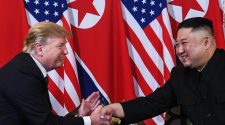



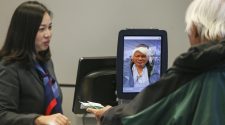

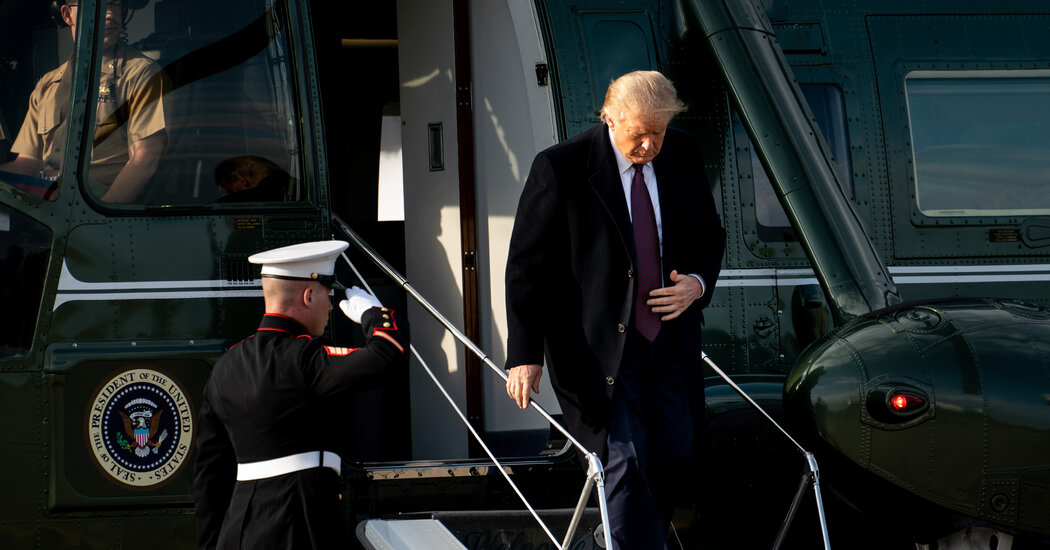

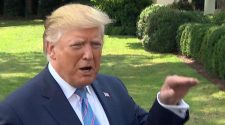



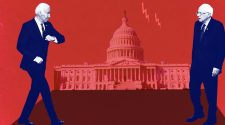


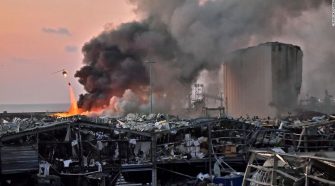
Federal Judge Reggie Walton Condemned Trump’s Comments About Judge Juan Merchan On CNN